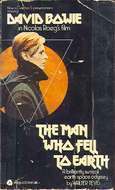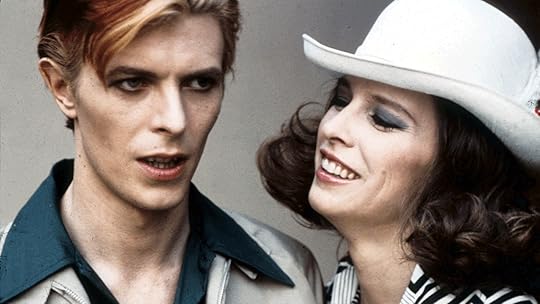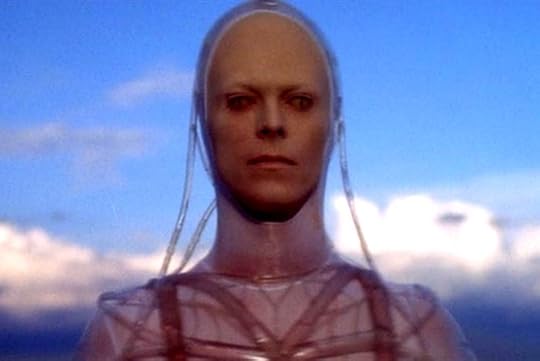What do you think?
Rate this book


189 pages, Mass Market Paperback
First published February 1, 1963


He stared at himself in the mirror for a long time crying. Then he spoke aloud, to himself, in English. "Who are you?", he said. "And where do you belong?"
And on the couch, Thomas Jerome Newton now lay drinking, his gin bottle open, his eyes glazed and staring at the ceiling in anguish... pg. 98














... he felt disgusted, weary of this cheap and alien place, this loud, throaty, rootless, and sensual culture, this aggregate of clever, itchy, self-absorbed apes--vulgar, uncaring, while their flimsy civilization was, like London Bridge and all bridges, falling down, falling down.That said, he did also seem imbued with the considerably calm resignation of the confident entrepreneur, keeping his focus on his mission as he battled self-doubt and a nagging fatigue. Considering what he was laboring under, I found his overall spirit admirable.:
He felt momentarily like Henry Thoreau, and smiled at himself for the feeling. 'Most men lead lives of quiet desperation.'Newton's congenial contretemps with a trusted ally reveals just how much Earth-folk would need him... if they actually cared to stretch their perception and notice.
"... I am carrying a weapon. I always carry it."I've read that this work was seemingly 'intended' as a metaphor for the experience of alcoholism. Even though there's a fair amount of drinking in these pages (esp. of gin), I don't really see that as the point. I think the book has a much, much larger concern - one that manifests itself in the (remarkably poignant) final chapter.
"An Anthean weapon?"
"Yes. A very effective one. You would never have made it across the floor to my bed."
Bryce inhaled rapidly. "How does it work?"
Newton grinned. "Does Macy's tell Gimbel's?"


